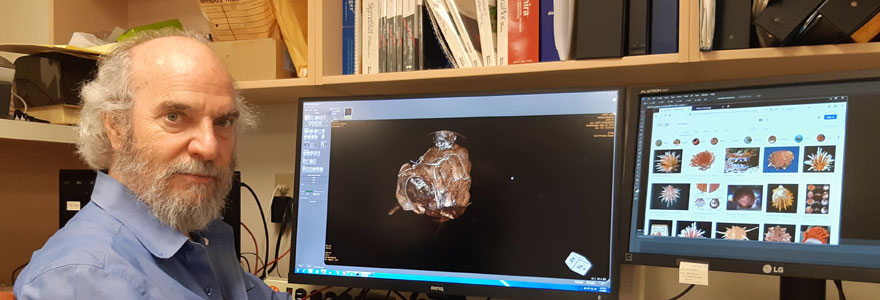News and Updates
Contact
Faculty of Social Science
Social Science Centre
Room 9438
Western University
T. 519-661-2053
F. 519-661-3868
E. social-science@uwo.ca
For Nelson, the mummy is a microcosm of a society
July 22, 2019
Story and Photo by Rob Rombouts
In 1438, an empire began, starting from the city of Cuzco, and spreading across the Andes. Within three generations, the Inka Empire had spread to encompass parts of modern day Ecuador, Peru, Chile, Bolivia and Argentina.
Using diplomacy and military strength, the Incas built, what was then the largest expanse of civilization in the Americas.
Andrew Nelson, Professor in the Department of Anthropology, has received a 3-year, $253,435 grant to examine mummy bundles to determine the impact of the takeover on the peoples of the central coast of Peru.
In the northern highlands of Peru, the population was subject to military conquest by the Inka, and the burial practices of the population changed completely. The area on the central coast, in contrast, underwent a more peaceful political takeover.
Nelson investigates mummified remains, and through the construction of an osteobiography, tells the story of a person’s life through their bones, teeth and preserved soft tissue.
The Inka mummies are placed in a flexed position are wrapped in burial shrouds to create a bundle. Through the use of non-destructive x-ray technology, Nelson looks inside the bundle to gather evidence about the living conditions and health of the person.
Trauma, such as broken bones, could be evidence of warfare.
By examining mummified soft tissue, diseases such as tuberculosis can be diagnosed.
Measuring bone length and dental age can provide evidence of conditions such as stunted growth.
Examination of how they were treated in death, including artefacts included in the bundle, provide evidence of their social standing and situation.
Nelson is interested to see if there is evidence of new diseases, and other health impacts, spurred by the spread of the Inka road system and trade.
In his project, Nelson will be working with Maria del Carmen Vega Dulanto, who completed her Anthropology PhD at Western, and received a Vanier Canada Graduate Scholarship. Vega is now in charge of the physical anthropology collection at the Museo Nacional de Arqueología, Antropología e Historia del Perú in Lima.
The project will also provide experiential learning opportunities for two undergraduate students and one graduate student.
The project furthers a theoretical focus on the bioarcheology of imperialism, studying expansionist events by means of studying human remains. The Inka Empire was one of two that existed in Precolumbian Peru, and the Inka Empire was in turn defeated by the Spanish conquistadores in 1532.
“The health impacts of conquest are huge,” said Nelson, “with people being treated as slaves, food insecurity, and diseases introduced and spread.”
Examining the remains provides a more complete picture of the impacts.
“There is no better way to understand a culture of the past than to understand the people themselves; both how they lived and how they died,” said Nelson. “The mummy is a microcosm of their culture and health, all wrapped in a neat bundle.

